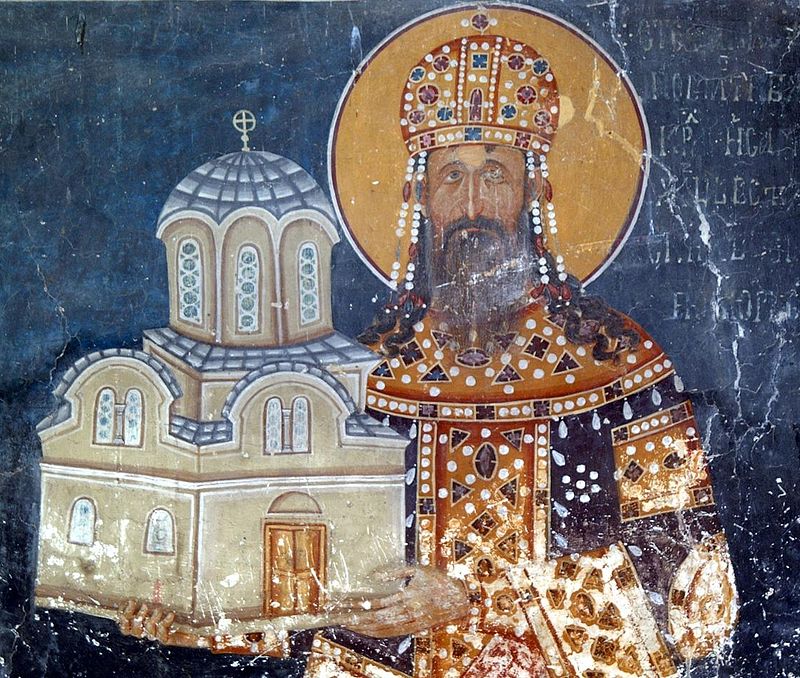OUR BLOG
Full commitment to the development of close relations
BILATERAL RELATIONSHIPS
REPUBLIC OF BULGARIA AND THE REPUBLIC OF SERBIA
Throughout history, relations between the Serbian and Bulgarian nations have been occasionally turbulent, as the two countries were fighting for territorial supremacy from time to time. Today’s bilateral relations are very constructive and political dialogue at the highest level is intense.

THE MIDDLE AGES AND LIBERATION FROM THE TURKS
Serbian-Bulgarian bilateral relations have been developing since the founding of the Bulgarian and Serbian states. During their long history, they have recorded ups and downs. Due to different geopolitical interests, the states were often on opposite sides. That is why political marriages between the Serbian and Bulgarian nobility were frequent. One of the most important among them was certainly the marriage of Tsar Dusan and the Bulgarian princess – later Empress Helena of Bulgaria.
In the 15th century, under Turkish slavery, both nations found themselves in the same, subordinate position, and the population of Serbia and Bulgaria suffered many repressions from the Turkish authorities.

The Battle of Nikopol
The concrete liberation movements of the two nations took place in 1804. Many Bulgarians joined the Serbian soldiers, and after the Second Serbian Uprising, especially during the reign of Prince Mihailo Obrenovic, there was close cooperation between Serbia and the Bulgarian rebels. A Bulgarian army was formed in Belgrade, which was trained for the liberation war in Bulgaria.
On March 3, 1878, the San Stefano Peace Treaty between Russia and the Ottoman Empire was signed in the Istanbul suburb of San Stefan. This ended the 1877-1878 war. Bulgaria, after five centuries of slavery, restored its statehood. That is why the Day of Liberation of Bulgaria from Ottoman rule – March 3, was declared a national holiday.

BBulgarian soldiers use bayonets to occupy Ottoman positions (source: Wikipedia)
History records that official diplomatic relations between our two countries were established on January 18, 1879. In July the same year, Prince Milan appointed his first diplomatic agent and consul general in Sofia, Sava Grujic, and the aide-de-camp of Bulgarian Prince Alexander Battenberg was sent to Nis.
BILATERAL RELATIONS TODAY Today’s relations between Serbia and Bulgaria remained solid, although they were shaken when Bulgaria officially recognized the independence of Kosovo and Metohija. Bulgaria has been a member of the European Union since 2007 and has been continuously supporting Serbia’s membership in the organization ever since. According to the volume of exchange, Bulgaria is one of Serbia’s most important trade partners.

NATIONAL MINORITIES
Numerous material and spiritual values testify of frequent connections, various forms of communication and cooperation between two very close nations.
Bulgarian national minority is a bridge of friendship between Serbia and Bulgaria and is one of the best integrated national minorities in the Republic of Serbia.
All Bulgarians in Serbia may use their right to use their own language and script, the right to education in thier mother language, the right to preserve cultural identity and the right to information in their mother language.

In Dimitrovgrad and Bosilegrad, Bulgarians are the majority of the population. In these municipalities, Bulgarian language is in official use, and Serbia has recognized and protects the Bulgarian language in accordance with the European Charter for Regional or Minority Languages in the area.
Thus, the subject Bulgarian language with elements of national culture is studied in five primary schools in Serbia, and Bulgarian language is studied within the Department of Bulgarian Language and Literature at the Faculty of Philology in Belgrade.
BULGARIAN CAPITAL KEEPS THE RELICS OF THE SERBIAN KING MILUTIN
The relics of the Serbian King Milutin have been kept in Bulgaria since the second half of the 15th century. They are located in the center of Sofia, in the church of Holy Sunday, which is also called “Holy King”. King Milutin, as a saint, is still highly respected by the Bulgarian church and people and is celebrated every year on October 30.








 2018
2018